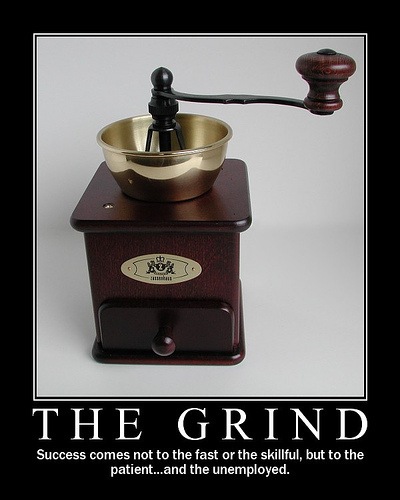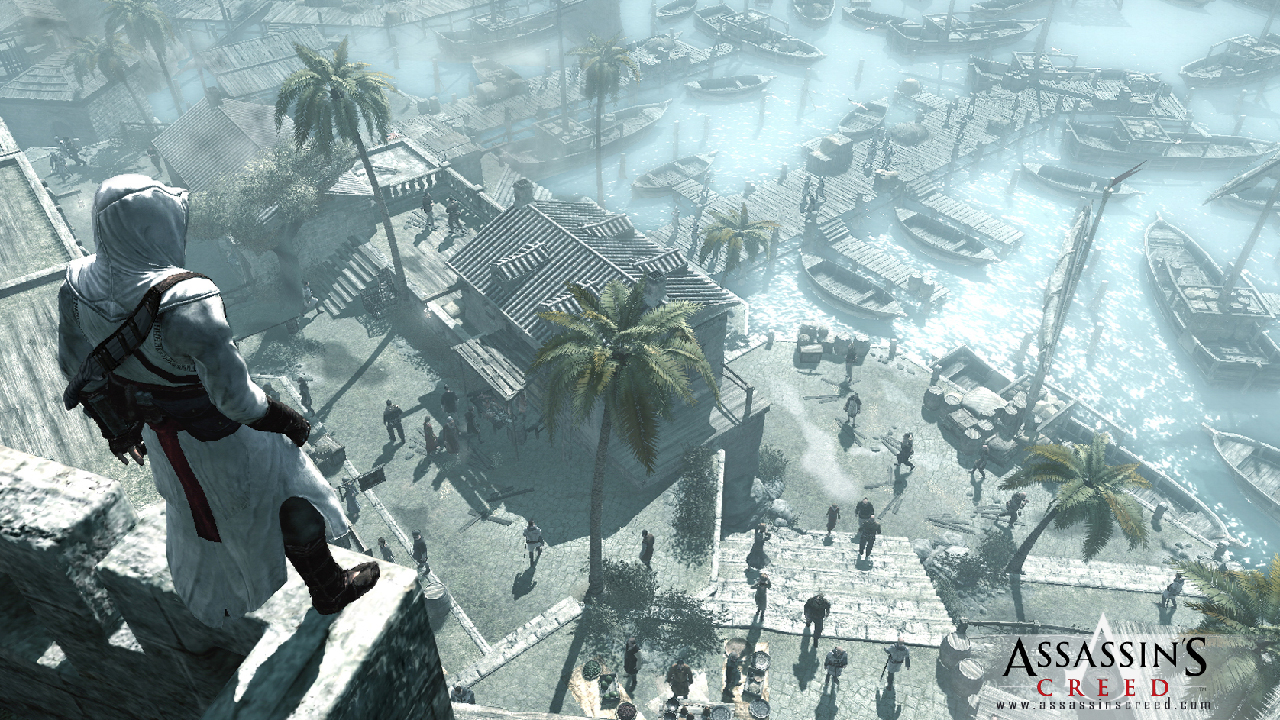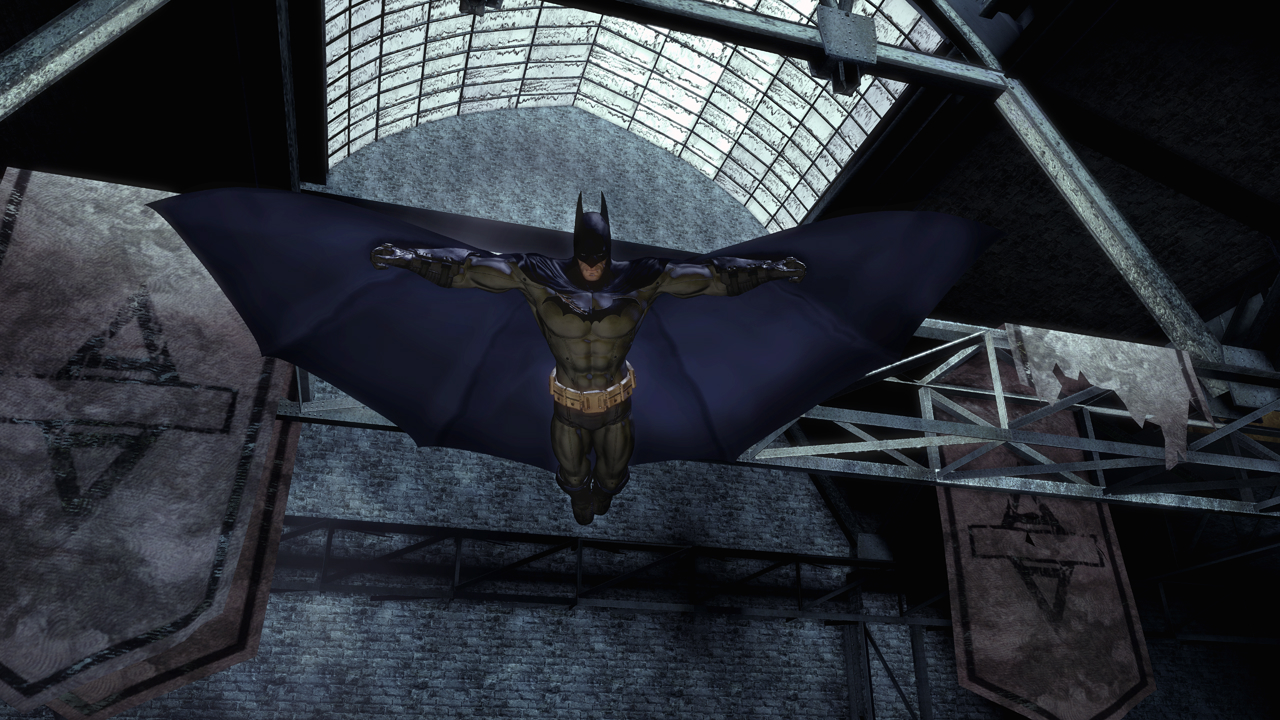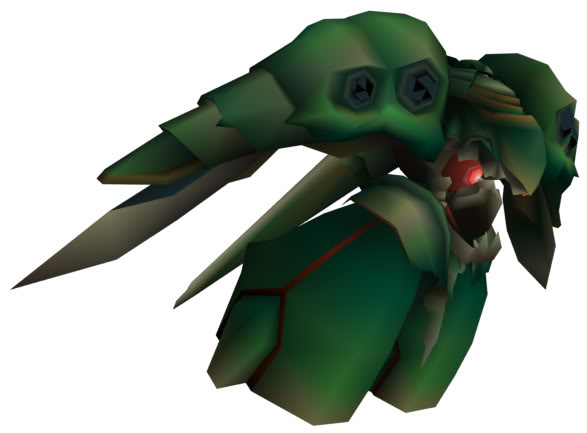This post has not been edited by the GamesBeat staff. Opinions by GamesBeat community writers do not necessarily reflect those of the staff.

Editor's note: This is an interesting follow-up to a post from last week, Grinding: The RPG Convention No One Wants to Copy. Gerren makes the point that players often grind voluntarily, even though it's unnecessary as well as unpleasant. I know I have. -Demian
I wasn't actually expecting to write anything tonight — heck, I haven't touched my own blog since last month — but the editors here at Bitmob highlighted a piece of work that lit a fire under me. Daniel Feit put together a wonderful post looking at role-playing game elements that have crossed over into other genres, and why grinding shouldn't become one of them. I don't just recommend reading it because I'm presenting a counter-argument; it's really good.
The most telling thing to me in Daniel's reflections was this: "I didn’t need to rid Arkham of all those killer plants, but I enjoyed the challenge of sneaking up on them and bursting them without getting hit. I didn’t consider it grinding, I just felt like I was playing the game my own way."
What that says to me is, "As long as I enjoy the mechanic, it's not a grind." It's always some non-essential task that someone doesn't enjoy that feels like "grinding," as opposed to the non-essential tasks that they do have take pleasure doing.
I consider any non-essential element in a game thrown in to extend gameplay as padding. It's a neutral term to me, though many probably associate it with a negative sentiment.

It's interesting that we often classify the non-essential stuff that we enjoy as "added value." Padding only starts to become a grind, it seems, when we don't love every minute of it. And there's plenty of padding or grinding in non-RPGs already — maxing out Altair in Assassin's Creed or a created athlete in a sports game, getting all the weapons in Army of Two, hell, Call of Duty 4 while we're at it. All of it requires extra effort, often repeating some task over and over, to accomplish a padded goal that's not required to complete a game.
I think game length actually has a big impact on what we consider to be added value and what's a tiring grind. Pad a six to ten hour game, and we cheer for extra reasons to extend the experience. So Riddler trophies in Batman: Arkham Aslyum are a win for gamers. However, if we're putting 30-60+ hours into a game, there's a good chance that at some point, basic game mechanics that were a blast at hour eight begin to feel like a grind.
Sounds to me like burnout more than anything else. Strangely, I seem not to have this problem. Ever. Which makes me think that the way people play games can have a huge effect on their enjoyment. Generally, whenever I hear the "grinding" complaint leveled, it's from someone who playes with a completionist mindset.
Daniel cited the battle with Emerald Weapon in Final Fantasy 7 as one of the frustrating grinds in that game. To beat it, you have to do quite a few side quests to get some key items to really have a shot. That never bothered me, mainly because I couldn't have cared less about defeating either of the extra Weapons in FF7, nor did I care that much to pick up the Knights of the Round summon. And FF7 is my favorite game of all time.
 I don't care about achievements. I don't care about Riddler trophies. I don't care about flags, pigeons, ultimate weapons, stars, or a 99 overall rating for my quarterback in my superstar modes. I appreciate that depth for people who are into that stuff, but that normally doesn't grab at me as a gamer.
I don't care about achievements. I don't care about Riddler trophies. I don't care about flags, pigeons, ultimate weapons, stars, or a 99 overall rating for my quarterback in my superstar modes. I appreciate that depth for people who are into that stuff, but that normally doesn't grab at me as a gamer.
Occasionally, I'll get into the extra stuff if I have a compelling reason, but I often don't stray much past the main story of a game, so I also don't burnout on repetition. I played through many hunts in Final Fantasy 12, but that didn't take me too far from my path in the story. Road to Glory mode in NCAA Football 10 grabbed me for about six weeks into the season, when it became tedious to do practices and other in-week stuff. Both were padding, but because I actually enjoyed the combat in Final Fantasy 12, only the sports game felt like a grind. And when that kicked in, I quit doing it.
Now in fairness to Daniel and his points, I certainly can't lay all the blame at the foot of obsessive gamers. NCAA's Road to Glory became very tedious, very quickly, because I became overpowered. I got through the high school playoffs doing well enough that my quarterback was already in the high 80s overall. I put him on my alma mater, the Texas Longhorns, figuring he'd at least have to sit as a freshman behind Colt McCoy, who is rated 97. But my player overtook McCoy's spot before the fifth game. I no longer had incentive to do the practices, as I wasn't going to lose my starting spot if I didn't. Consequently, a good portion of the meat of that mode meant nothing and the challenge was lost.
 And many games have similar problems, whether it be an action game that restarts you with all your weapons on the second play-through but doesn't scale up the enemies, or an RPG that requires you slaughter cannon fodder enemies for hours to progress in the story. That's unpleasant padding to me, but it's nothing exclusive to the RPG genre.
And many games have similar problems, whether it be an action game that restarts you with all your weapons on the second play-through but doesn't scale up the enemies, or an RPG that requires you slaughter cannon fodder enemies for hours to progress in the story. That's unpleasant padding to me, but it's nothing exclusive to the RPG genre.
So let's not fool ourselves into thinking grinding is an RPG-only thing. We've been grinding for years. But when you love the game, you rarely complain.
"Grinders always win." Except in Gears of War. Gerren LaQuint Fisher, when not grinding, just contributes to The Game Reviews, tweets @gerrenlaquint, and runs a humble little blog called The Underscore
